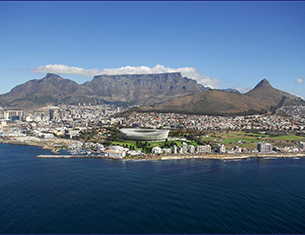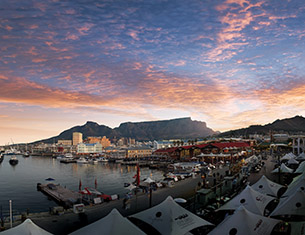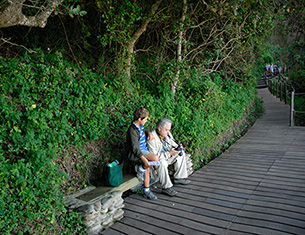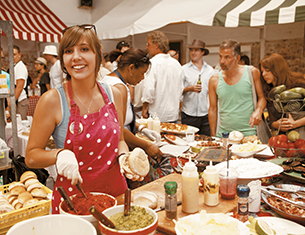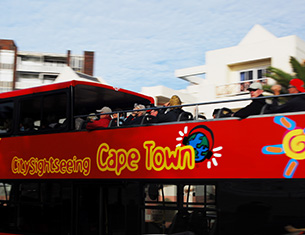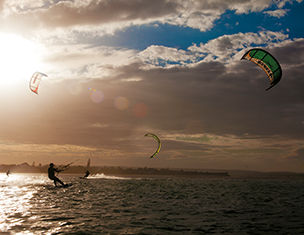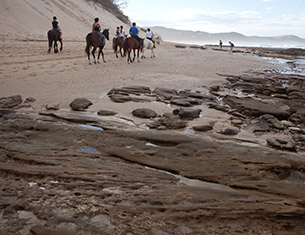Visit Cape Town
About Cape Town
It’s safe to call Cape Town the most beautiful city in Africa. Dramatic mountain scenery, lovely beaches, an architecturally delightful city centre, designer shopping and that world-famous, flat-topped mountain will both stun and enchant you.
It’s an easy place for tourists, with most attractions clustered close together or linked by a good transport system, with spectacular scenery when you venture further afield. There’s a European feel to the upmarket areas, mixed with African vibrancy in its street life and craft markets.
SA’s main tourist centre offers plenty to see and do, as well as a rich history. Robben Island, where former President Nelson Mandela and many other political prisoners were incarcerated during apartheid, is a must-see. Beyond the city are the world-famous winelands and a peninsula that eventually tapers to a windswept point, with some charming towns to visit on the way. All in all, you’re sure to love it.
Travel Tips
Time
South Africa is a constant GMT+2 hours, with no Daylight Saving Time.
Currency
The currency is the Rand (each comprising 100 cents) and the exchange rate is currently highly favourable for most foreigners, especially from North America and Europe. ATMs are ubiquitous and credit and debit cards are widely accepted. Foreign currency can be exchanged at bureaux de change, hotels and banks.
Weather
Like most things in Cape Town, the weather has a Mediterranean feel. Winter, which lasts from June to September, is often mild, with temperatures around 18 °C, but there can be sharp cold fronts off the Atlantic Ocean, strong winds and a fair dose of rain. Summer (December-March) is dry and hot, especially in the City Bowl. Late spring and early summer can also bring strong winds.
Electricity
South African plugs are a rare breed, with three fat round pins, so buy an adaptor at the airport. Many hotels have installed European and UK-style sockets too and stock adaptors at reception.
Communications
Mobile networks have the city covered. Roaming calls and data are expensive, so buy a local SIM card to make local calls. (You’ll need to show your ID to purchase one.) There are plenty of wi-fi hotspots in town and hotels, but you might find the speeds sluggish, compared with your own country.
Public transport
Unusually for South Africa, Cape Town has an extremely efficient and widespread public transport system. The MyCiTi bus covers the city centre and suburbs (including tourist hotspots like Camps Bay) and is fast, reliable, fairly cheap and easy to understand. Buy a bus card from one of the stations, load it with cash and swipe your way on and off each bus. , then swipe your way on and off each bus. It runs out to tourist hotspots like Camps Bay too.
To enjoy coastal towns like Simon’s Town, Muizenberg or Kalk Bay, take the coastal train run by Cape Metrorail. The main station is near the city centre and the trains are regular and cheap. There are taxi ranks throughout the city, while Uber is active here too.
Airport to City Center
The airport is 22km from the city and the cheapest way in is on the MiCiti bus, which takes you right to the heart of town. There are also many taxis and car rentals companies. A car is a good idea if you’re planning to tour the spectacular coastline or head to the winelands, which is a must-do.
For South African Airways flight offers, visit our flights to Cape Town page.


